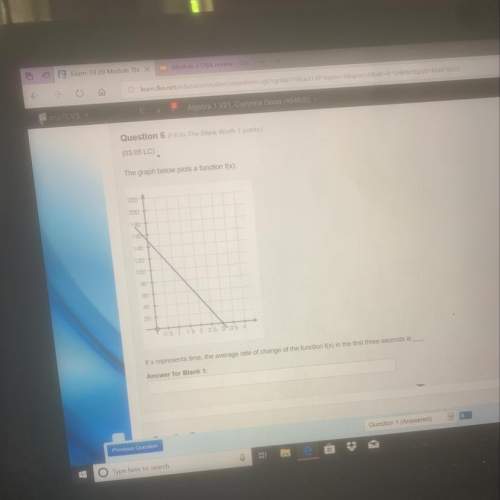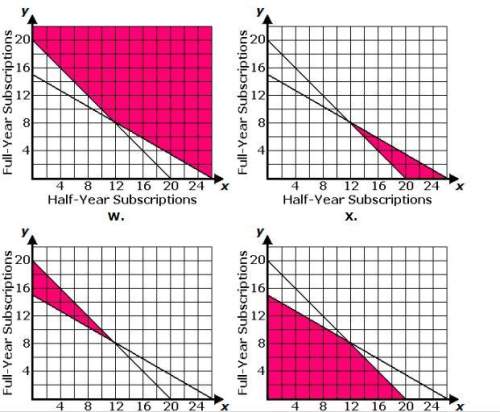
Mathematics, 09.10.2020 23:01 calebabaltimore
Use the recursive formula f(n) = 0.4 ⋅ f(n − 1) + 12 to determine the 2nd term if f(1) = 4. f(2) = 12.6 f(2) = 13.2 f(2) = 13.6 f(2) = 14.2

Answers: 1


Other questions on the subject: Mathematics

Mathematics, 21.06.2019 15:40, chaparro0512
If the slope of one line equals the slope of another line then ? a) the two lines are intersecting lines b) the two lines are perpendicular lines c) the two lines are parallel lines d) the two lines always have very steep slopes
Answers: 3

Mathematics, 21.06.2019 19:30, apere655
Ascientist wants to use a model to present the results of his detailed scientific investigation. why would a model be useful? a )because the model makes the concepts easier to understand b) because the model is easy to put together and to use c) because the model prevents other scientists from asking questions d) because the model requires the audience to pay full attention to it i don't know what to choose because between a and d a is much more likely than d because it only wants to get the attention of the audience. i'm confuse.
Answers: 1

Mathematics, 21.06.2019 21:40, joeykyle05
Write the contrapositive of the conditional statement. determine whether the contrapositive is true or false. if it is false, find a counterexample. a converse statement is formed by exchanging the hypothesis and conclusion of the conditional. a) a non-converse statement is not formed by exchanging the hypothesis and conclusion of the conditional. true b) a statement not formed by exchanging the hypothesis and conclusion of the conditional is a converse statement. false; an inverse statement is not formed by exchanging the hypothesis and conclusion of the conditional. c) a non-converse statement is formed by exchanging the hypothesis and conclusion of the conditional. false; an inverse statement is formed by negating both the hypothesis and conclusion of the conditional. d) a statement not formed by exchanging the hypothesis and conclusion of the conditional is not a converse statement. true
Answers: 1

Mathematics, 21.06.2019 22:20, abbygriffin8575
Which graph has figures that can undergo a similarity transformation to justify that they are similar? (obviously not the third one)
Answers: 2
You know the right answer?
Use the recursive formula f(n) = 0.4 ⋅ f(n − 1) + 12 to determine the 2nd term if f(1) = 4. f(2) = 1...
Questions in other subjects:

History, 02.06.2021 21:20

Mathematics, 02.06.2021 21:20

Mathematics, 02.06.2021 21:20


Mathematics, 02.06.2021 21:20

Chemistry, 02.06.2021 21:20


Mathematics, 02.06.2021 21:20






